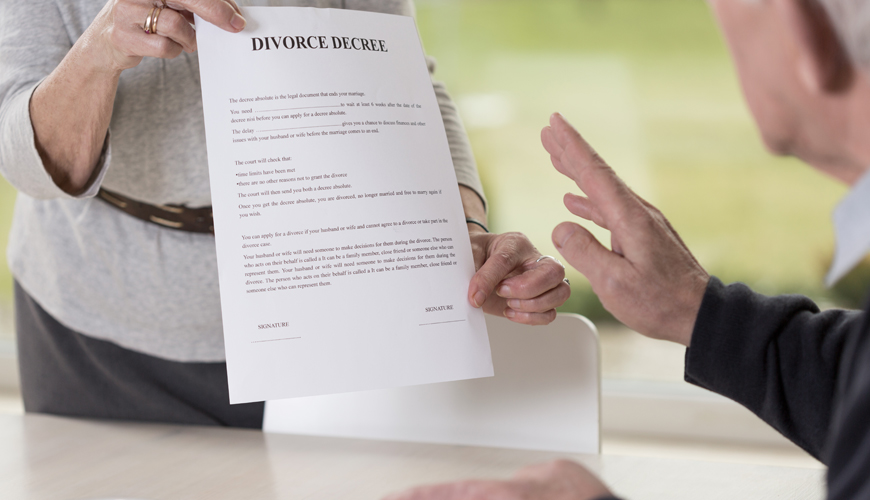Often, partners will decide to live apart or lead separate lives without getting divorced.
Choosing not to get divorced is entirely acceptable if dissolving your marriage is against your religious or personal beliefs, or if you wish to keep your family together legally speaking.
So how does separation compare to divorce, are there different stages of a separation, and do you need family solicitors Emsworth to guide and advise you through the process?
Read on to find out more or visit our firm of solicitors, Andrew & Andrew, for further information.
Trial separation
Are you and your partner not getting along and questioning the future of your relationship? Trial separation occurs when spouses decide to physically separate, to determine if a reconciliation is possible or if divorce is more likely.
During your time apart, you and your estranged partner should draw up an informal agreement on a budget and child arrangements, as you are both jointly responsible for your financial obligation and the welfare of your offspring.
If you decide that there is no going back from your trial separation, you and your spouse enter into a permanent separation.
Permanent separation
A permanent separation occurs when there is no chance of reconciling, yet divorce is not a viable option. At this point, it may be helpful to consult with our family solicitors Emsworth on how to proceed.
Once permanently separated, you are not responsible for debts nor entitled to property accrued by your spouse following the separation. However, these rules are governed by the official date of your separation, which is how things can turn complex. For example, if your spouse moves out unexpectedly, and you receive a bonus at work, is he or she entitled to a portion of this money?
Tread carefully while finalising your status of being permanently separated, as short-lived reconciliation can complicate the above.
Legal separation
As we have mentioned, some individuals prefer to be legally separated than divorced. By deciding to legally separate, you and your spouse are neither married nor divorced.
This is only problematic if you plan to remarry, as you will have to be legally divorced to do so.
Legal separation draws many parallels to the procedures linked to getting divorced, where property divisions, alimony and child support are matters needing to be decided upon. If you are having trouble negotiating these terms, our family solicitors Emsworth can provide some guidance.
How do I go about getting legally separated?
Yet another reason why people prefer separation over divorce is that you do not need to prove that a relationship has irretrievably broken down, which can prevent further disputes and finger-pointing as to who is to blame.
To legally separate in the UK, you will need to fill in a judicial separation petition or a D8 form. Submit three copies to your nearest divorce centre and keep one for your own records.
The cost of a legal separation is a modest amount. However, if you are on benefits or a low income, you can apply for financial assistance for court fees.
How long will it take to legally separate?
Unfortunately, you are at the mercy of the courts, so you may have to wait four to six months before you are declared legally separated from your estranged spouse.



